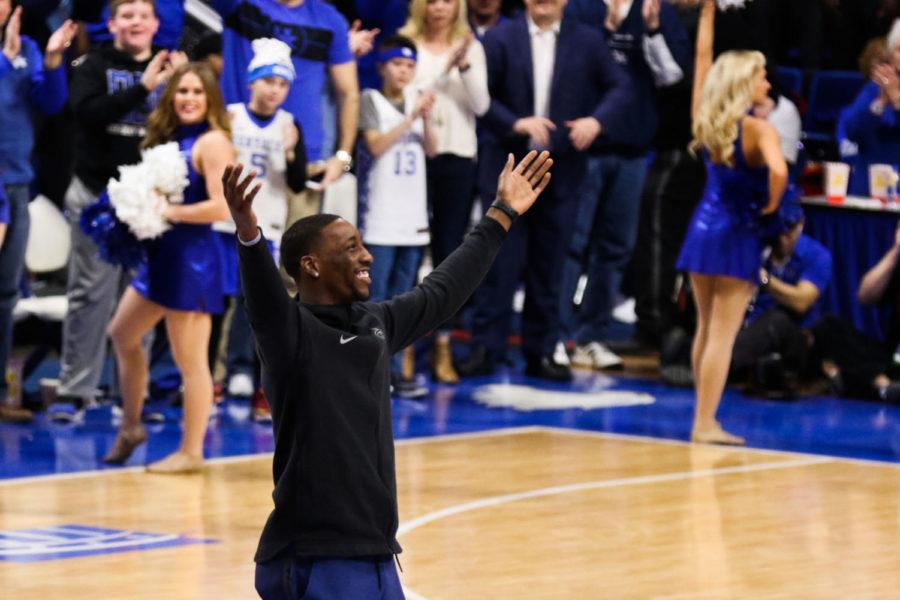Three UK men’s basketball players appear on FBI documents
Former Kentucky basketball play Bam Adebayo returns as the ‘Y’ during a timeout during the game against Alabama on Saturday, February 17, 2018 in Lexington, Ky. Kentucky won 71-81. Photo by Arden Barnes | Staff
February 23, 2018
Three former or current UK men’s basketball players are named in the federal college basketball probe led by the FBI, according to an article from Yahoo Sports released on Friday morning.
The FBI had reportedly been collecting documents, spreadsheets and wiretaps over a period of time related to the case, and Yahoo Sports obtained hundreds of those documents. It shows that Kevin Knox, Bam Adebayo and Nerlens Noel all had involvement with ASM Sports’ Andy Miller or Christian Dawkins.
Knox’s name appears on a list of players that had a meeting or dinner with Dawkins. Other prominent players on the list include Alabama’s Collin Sexton, Duke’s Wendell Carter and former Virginia player Malcolm Brogden.
“There’s nothing wrong with meeting with an agent,” said Atlanta-based lawyer Stu Brown to Yahoo Sports, a veteran of representing schools and coaches in NCAA compliance cases. “But then it becomes a question of who pays for the meal.”
Podcast: Where does UK go from here?
Adebayo and Noel received loans from ASM, with Adebayo receiving $12,000 in aid while Noel received $4,350. There’s another document titled “Bad loan” that says Adebayo received up to $36,500 in payments.
Kentucky was on a list of schools of interest along with Duke, North Carolina, Texas, Michigan State, USC and Alabama. Three of those teams have won NCAA national championships in recent years.
READ: Calipari said he has no involvement; UK to conduct internal investigation
According to its website, the NCAA decides penalties on a case by case basis because “each case is unique and applying case precedent is difficult (if not impossible).”
The penalties enforcement page says that penalties should be “sufficient to deter an institution from breaking the rules again.”
Also, the NCAA would remove any competitive advantage that may have been gained by cheating. It’s unclear how this could affect players already in the NBA, but, if true, Knox could be ruled ineligible.
The website gives an example of a penalty: If extra benefits were extended to student-athletes, which could be the case here, scholarship penalties could apply.
Scholarship penalties were part of the punishment that UK received in 1989 after the NCAA discovered UK had violations relating to impermissible recruiting, academic ineligibility, lack of institutional control, unethical conduct and extra benefits.
The involved penalties were a one-year ban from television, a two-year ban from the post-season, probation for three years and a reduction in financial aid. UK did not have recruiting penalties, nor were wins vacated, but player Eric Manuel was banned from playing in the NCAA and Chris Mills could no longer play at Kentucky.
It was reported at the time that the NCAA was considering the death penalty but decided against it because then president David Roselle cooperated with the NCAA.
The NCAA released a statement from NCAA president Mark Emmert.
“Simply put, people who engage in this kind of behavior have no place in college sports,” Emmert said in a press release.






























































































































































